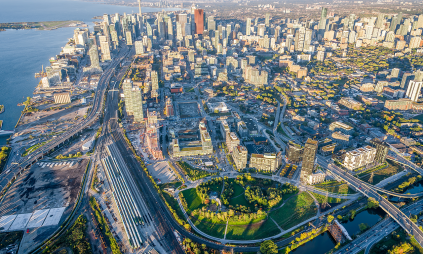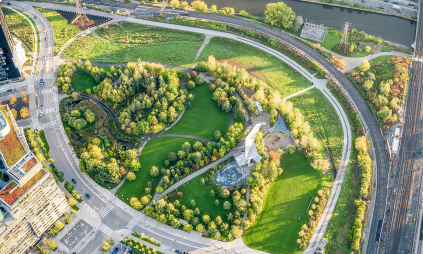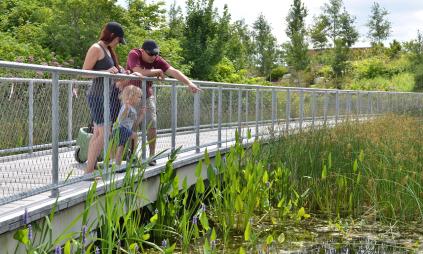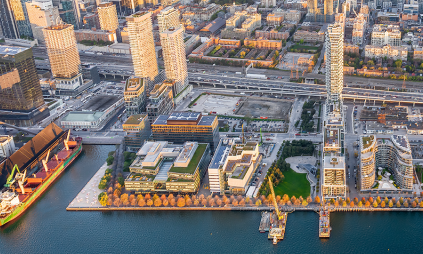Environmental Management
The revitalization of Toronto’s waterfront is one of the largest urban brownfield projects in the world and Waterfront Toronto is striving to raise the bar on brownfield remediation.
As part of our commitment to sustainable development, we require that construction managers for each of our projects comply with our Environmental Management Plan for Project-Related Activities (EMP). This document supports our resilience and sustainability objectives by establishing measures to prevent pollution and environmental impairment, preserve cultural and natural resources, protect wildlife habitat and ensure compliance with applicable legislation, regulations, policies and guidelines.
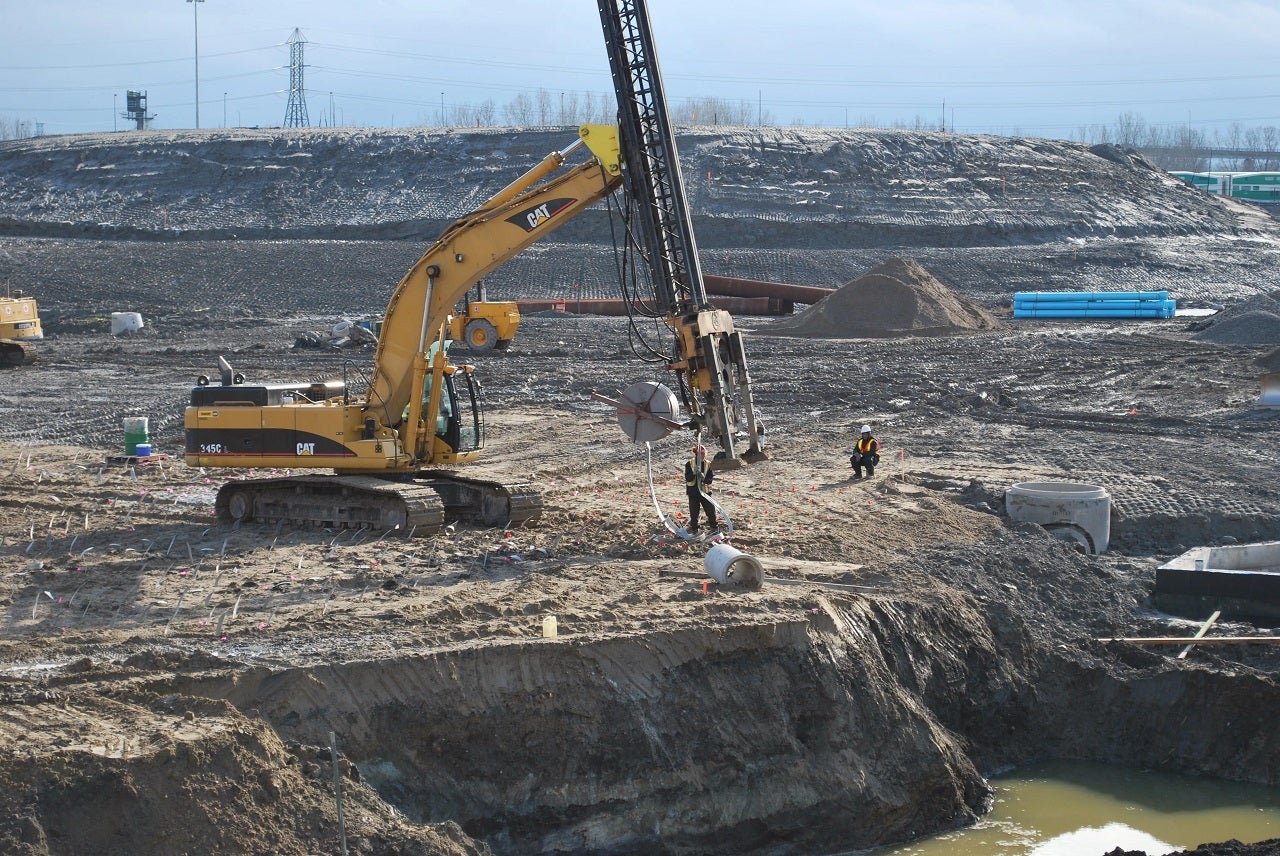
Environmental Protection Plans
At the start of each project, construction managers are required to submit Environmental Protection Plans to Waterfront Toronto and provide us with quarterly reports. These reports allow us to track the impacts of project-related activities and verify that our sustainable development goals are being met or exceeded. Environmental Protection Plans include:
- Air Quality and Dust Management
- Archaeological and Built Heritage Resources Management
- Contaminated Soils Management
- Erosion and Sediment Control
- Fuel and Lubricants Management
- Groundwater Management
- Methane Control
- Noise and Vibration Management
- Project-related Waste Management
- Stormwater/Surface Water Management
- Traffic Management
- Vegetation Management
- Wildlife Management
Construction managers are also required to follow the Contingency and Emergency Response Plans included in the Environmental Management Plan. These plans are put into place before work gets underway in order to address the consequences of unforeseen occurrences such as operational upsets and malfunctions.
Soil Management
The revitalization of Toronto’s waterfront is one of the largest urban brownfield projects in the world. Its renewal depends on our ability to deal with soil that has been impacted by decades of industrial uses, and by infilling long ago when environmental standards were not as stringent as today.
Waterfront Toronto is striving to raise the bar on brownfield remediation. To deal with the almost 2,000 acres (800 hectares) of waterfront land requiring remediation prior to redevelopment, we use the latest and best technologies to treat and reuse soil wherever possible rather than "digging and dumping", which simply transfers the contamination and problems to landfill sites. And, by considering soil a resource to be managed in a sustainable way, we are also able to reduce the amount of soil imported from elsewhere. This approach has been a hallmark of Waterfront Toronto’s Soil Management strategy throughout our history, and has evolved to reflect the current requirements of the Excess Soil Regulation.

